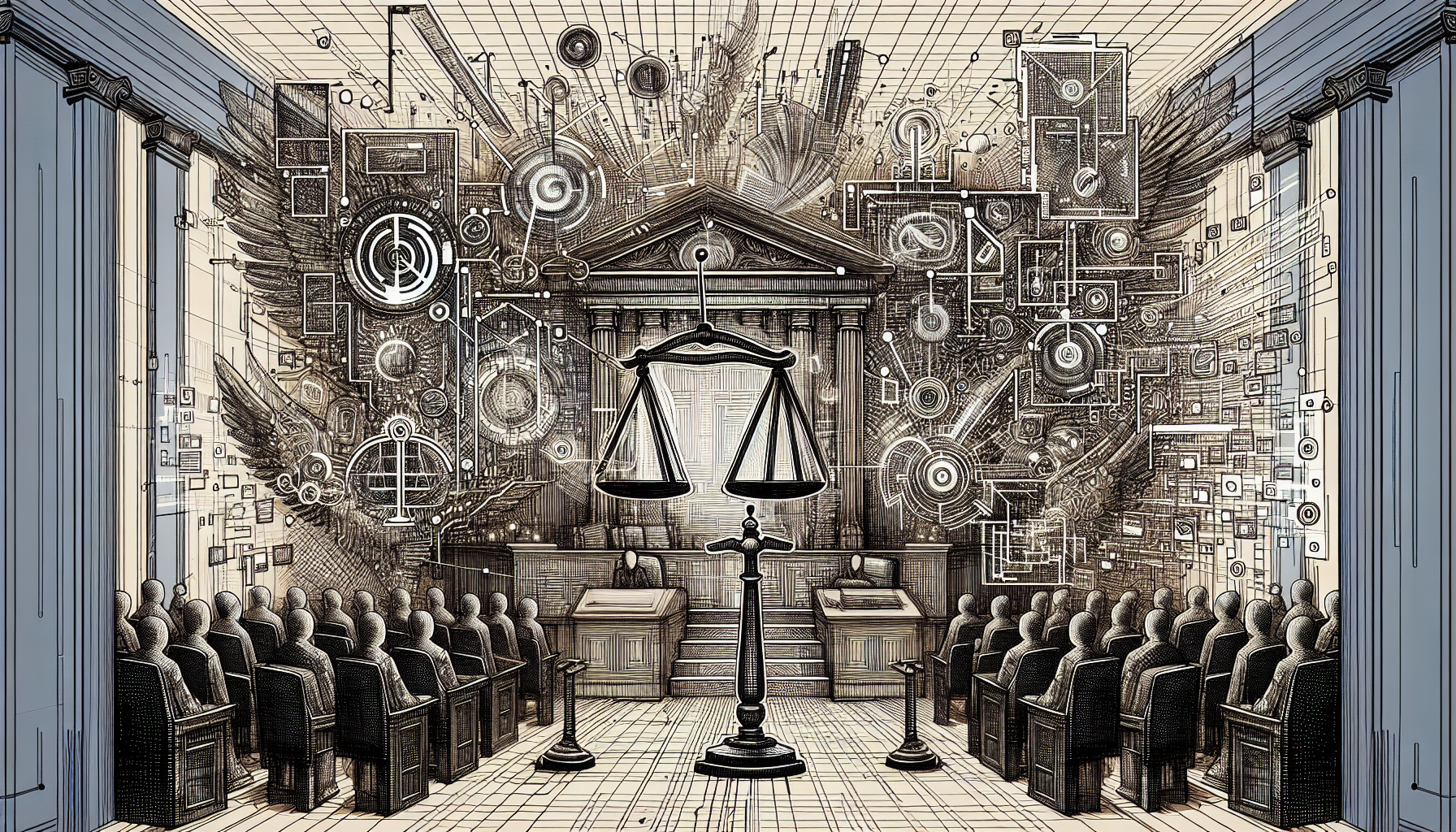
Decoding White-Collar Crime Defense
White-collar crime defense involves representing individuals or corporations accused of non-violent, financially motivated crimes such as fraud, embezzlement, or insider trading. These cases often feature intricate financial data, extensive documentation, and complex legal arguments. Attorneys specializing in this area must be adept at interpreting regulations, negotiating plea bargains, and presenting compelling defenses. Setting the stage for successful legal defense in white-collar crime cases demands meticulous preparation and exhaustive research.
Ensuring success in this field isn’t the sole responsibility of attorneys. Paralegals play a pivotal role, handling demanding and detailed tasks critical to case management.
The Paralegal’s Predicament: Managing Complexity with Technology
Paralegals in white-collar crime defense face immense challenges such as managing vast quantities of documents, maintaining up-to-date legal knowledge, and ensuring all filings meet stringent deadlines. The complexity of these tasks can be overwhelming, potentially leading to errors that could jeopardize a case.
Fortunately, the advent of legal technology offers practical solutions. Tools that harness artificial intelligence (AI) can streamline routine tasks, enhancing paralegal efficiency and accuracy. By integrating technology into their workflow, paralegals can manage complexity more effectively and reduce their workload.
Among these emerging technological tools is ChatGPT, an AI that can act as a digital assistant, giving paralegals a powerful ally in their daily tasks.
Also read:
Introducing ChatGPT: The Paralegal’s Digital Assistant
ChatGPT is an AI language model developed by OpenAI, designed to assist with various tasks through natural language processing (NLP). For paralegals involved in white-collar crime defense, ChatGPT can generate legal summaries, assist in document drafting, and streamline legal research.
By incorporating ChatGPT into their daily workflow, paralegals can improve their efficiency and accuracy. This AI-powered tool can manage repetitive tasks, allowing paralegals to focus on more complex aspects of case preparation. Understanding ChatGPT’s capabilities can help paralegals leverage this AI to its fullest potential.
The key, however, lies in crafting the perfect prompts to maximize ChatGPT’s potential.
Also read:
Crafting the Perfect Prompts: Mastering Nuanced Interactions
To truly benefit from ChatGPT, paralegals must master the art of crafting effective prompts. The precision and clarity of prompts directly impact the quality of the AI’s responses. When dealing with white-collar crime defense, nuanced prompts can elicit more relevant and detailed outputs.
Here are some examples of effective prompting:
- Legal Summaries: Instead of a vague query like “Summarize this case,” specify, “Provide a summary of the main points in the criminal fraud case of [Case Name], focusing on the key arguments presented by the defense.”
- Document Drafting: A broad request like “Draft a contract” might yield generalized results. Instead, try, “Draft a non-disclosure agreement between [Company A] and [Company B], highlighting clauses related to financial misconduct and confidentiality obligations.”
- Legal Precedents: For researching legal precedents, rather than asking “Find cases related to fraud,” consider, “Identify precedent cases on wire fraud involving insider trading from 2015 to 2020 in the Second Circuit.”
Effective prompts ensure the AI comprehends the context and delivers precise, useful information. With experience, paralegals can fine-tune their prompts to maximize ChatGPT’s capabilities, making their interactions with the AI more productive.
Moving beyond prompt formulation, let’s explore how ChatGPT revolutionizes legal research.
Also read:
Legal Research Reimagined
Legal research is a cornerstone of white-collar crime defense. Paralegals often spend hours sifting through case law, statutes, and legal precedents to build a robust defense. ChatGPT can expedite this process by delivering concise and relevant information quickly.
Executing effective legal research with ChatGPT requires formulating precise queries. For example:
- Specific Case Laws: Querying “List state cases between 2018-2023 involving corporate embezzlement judgments in favor of the defendant in California” directs the AI to provide targeted cases.
- Statutory Interpretation: Asking “Explain the key provisions of the Sarbanes-Oxley Act related to white-collar crime” will yield a focused overview useful for case preparation.
By leveraging AI, paralegals can cut down research time, ensuring they have the most relevant, up-to-date information at their fingertips. This reimagined approach to legal research positions paralegals to better support their attorneys.
Next, we delve into how ChatGPT aids in drafting and reviewing legal documents.
Also read:
Document Drafting and Review: Precision with AI Assistance
Drafting and reviewing legal documents is a critical task in white-collar crime defense. Precision and comprehensiveness are non-negotiable. ChatGPT can assist by generating document templates and proofreading drafts to ensure they meet legal standards.
For instance, when tasked with creating a motion, a prompt such as “Draft a motion to dismiss charges against [Client Name] in a financial fraud case, citing insufficient evidence” can yield a solid starting point. Additionally, requesting ChatGPT to “Review this draft contract and highlight any ambiguous terms or potential legal risks” can catch errors paralegals might overlook.
This AI-powered assistance ensures that documents are not only accurate but also comprehensive, significantly mitigating the risk of oversight.
We now turn to the critical phase of preparing for court with AI insights.
Also read:
Preparing for Court: Scripting Success with AI Insights
Preparing for court involves creating detailed case summaries, devising witness questions, and finalizing arguments. ChatGPT can play an integral role in this process. Prompts such as “Summarize the key points of [Witness Name]’s deposition” or “Draft a series of cross-examination questions for [Witness Name] related to financial discrepancies” can produce valuable materials that save paralegals significant time.
Also read:
Continuous Learning: Staying Ahead of the Curve
To effectively leverage AI tools like ChatGPT, paralegals must engage in continuous learning. Staying updated on AI advancements, understanding new functionalities, and mastering sophisticated prompt techniques can dramatically enhance their productivity.
Regular training sessions, webinars, and professional development courses can keep paralegals at the forefront of technological integration in legal practice.
However, with great power comes great responsibility, making ethical considerations paramount.
Also read:
Ethical Considerations: Using AI Responsibly
Using AI in legal work demands adherence to ethical guidelines. Paralegals must ensure that AI-generated content complies with confidentiality agreements, avoids unauthorized practice of law, and maintains the integrity of legal documents.
Following best practices, such as verifying AI outputs and using AI as an aid rather than a substitute for human judgment, can help paralegals navigate this new landscape responsibly.
Looking ahead, paralegal work promises a symbiotic relationship with advanced technology.
Also read:
The Future of Paralegal Work: A Symbiosis with Technology
The future of paralegal work is undoubtedly intertwined with technological advancements. By harnessing AI tools like ChatGPT, paralegals can perform their duties with unprecedented efficiency and accuracy. This symbiotic relationship allows paralegals to navigate complex tasks more effectively, ensuring robust support for attorneys in white-collar crime defense.
Embracing this technology-driven future will equip paralegals to meet the evolving demands of the legal profession, achieving greater heights in their careers.


